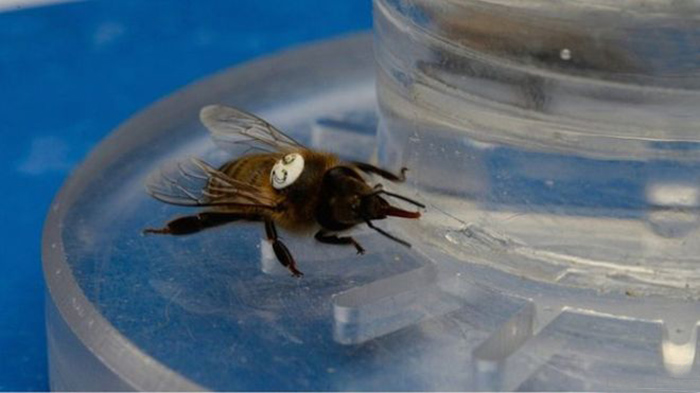An experiment with artificial nectar has now shown that bees are attracted to and even "drugged" by the compound.
The research is published in the journal Current Biology.
Prof Francis Ratnieks from the University of Sussex, a senior member of the research team explained that previous research had shown that caffeine boosted bees` memories of the location of a flower.
"So people [already] thought it would affect their perception of nectar," he told BBC News.
To find out if this was the case, the research team set up two artificial flowers for bees to feed from - one containing sugary nectar without caffeine, and another with a concentration of the compound similar to that found in many plants.
So they could record each individual bee`s behaviour, the team glued tiny identification numbers to the insects` backs.
The bees would return to the caffeinated nectar more quickly - making slightly more foraging trips, but the most striking finding was that caffeine "made the bees dance" much more.
After a visit to the caffeinated nectar, honeybees were much more likely to perform their waggle dance - a series of movements that communicate the location of a nectar source to their nest-mates.
By dancing, explained Prof Ratnieks, "they`re communicating - hey I`ve found some good food".
"The vast majority of bees don`t waggle dance - they only do it to communicate a particularly good location."
So the caffeine had an effect on the insects that was "akin to drugging" - causing behave as though the nectar source was of higher quality, and richer in sugar.
"And it`s presumably cheaper for the plant to produce a small amount of caffeine than a large amount more sugar."
Dr Margaret Couvillon, who led the study, said the "post-exposure" effects on the bees were also very surprising.
"The bees that had been foraging on the caffeine kept revisiting the feeder [for many days] once it was empty," she told BBC News.
"So the effects of this one three hour experience (of caffeine) lasted for many days."
Dr Couvillon explained that, while the classic image of pollination was a "warm, mutualistic relationship," where the pollinator receives a reward from the plant, this showed a conflict.
She said: "We`re showing a way that the plant gets the upper hand on the bee, through an action that`s akin to drugging."
More about:
















































